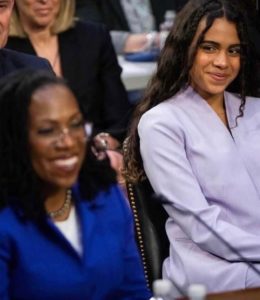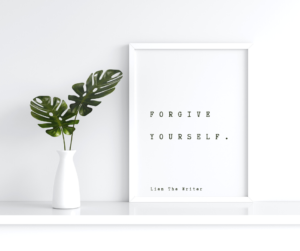Janice Castro’s journey is a powerful testament to resilience, self-discovery, and the pursuit of a meaningful career rooted in cultural competence and mental health advocacy. As a daughter of immigrants and a first-generation college graduate, Janice turned her personal experiences into a driving force to fill the gaps she saw in behavioral health services for minority communities. Her passion for making mental health care more inclusive and accessible shines through her work, as she uses her unique perspective to empower others and promote social justice. Janice’s story serves as a source of inspiration for those navigating similar challenges, proving that lived experiences can become your greatest strength.
- What inspired you to pursue a career in psychology, particularly focusing on culturally competent behavioral health services?
In high school, I was unsure what career path to follow, largely because my parents hadn’t gone to college. I knew college was a route to getting a job for financial independence, but nothing stood out to me academically. Some friends suggested counseling because I was a good listener who enjoyed helping others. After taking a psychology class in my junior year, I thought it was really interesting, so I pursued it as a major in college. As I delved deeper into psychology classes, I realized how little research and resources were available for minority groups. Growing up in a Peruvian, low-income Spanish-speaking household witnessing domestic violence, I understood firsthand the stigma around mental health and how it prevented my family from seeking help. That sparked my desire to pursue a career in psychology to ensure I could provide culturally competent services to contribute to filling a gap that I saw existed in the mental health field. With the guidance and support of mentors, I saw that as a bilingual, bicultural Latina, I could make a real impact by providing these essential services to the Latine community.
- How have your personal experiences as a daughter of immigrants and a first-generation college graduate shaped your approach to mental health care?
I consider myself a wounded healer, as my personal struggles deeply influence my passion for helping others. As a child of immigrants, I was a language broker, lived in poverty, witnessed my father’s deportation, and witnessed intimate partner violence. When I started college, I realized that my education was something I had control over that might help me escape the chaos I grew up in. I was admitted into a TRIO Program which is an educational opportunity outreach program designed to motivate and support students from disadvantaged backgrounds. The TRIO Programs helped me navigate the challenges of being a first-generation student.
However, college was hard because my parents couldn’t help me and I had a hard time asking for help, especially as a Latina eldest daughter. Now as an adult, I realize I was a child who had to grow up fast and took on a parentified role to help my family. These experiences led me to assume that I couldn’t ask for help, instead I was the one people came to for help. This translated into my academic world where I didn’t know what I could ask for help with or who to go to. Having attended predominantly white institutions, I would code-switch so I could sound eloquent and feel accepted by my white peers and professors.
My experiences as a daughter of immigrants and first-generation college student shaped my approach to mental health care by teaching me the importance of context, empathy, and understanding. I realize how these identities influence so much of who I am today. While they may be considered identities as part of minority groups, that is what fuels the fire in me to continue to help amplify others’ voices and to ensure there is an even playing field for all of us, which is part of the social justice work I incorporate in my business. Also, I approach all of the work that I do with empathy, compassion, and a multicultural lens so I can ensure to consider context with my clients, and the audience for the speaking engagements and consultations that I do. While I know some people can relate to some of my identities, which I’m sure can be empowering and inspiring, I also recognize that all of us Latine who are first-generation college graduates, and children of immigrants are not a monolithic group so I stay curious and open to learning in the work I do. That’s what I love about it! There’s always more to learn.
- What motivated you to start J.C. Psychological Services, and how has it allowed you to better serve your clients?
I repeatedly faced burnout working within systems not designed for people like me—systems built by and for white, patriarchal, capitalist structures. As an aspiring psychologist, my graduate training and the different clinical sites I worked at would emphasize the ethical duty we have of taking care of ourselves to ensure we can serve others in our work. If I wasn’t sacrificing my self-care then I was sacrificing how much I would get paid. I found it difficult to find a place where I experienced getting paid well that allowed me to want to live the life that I dreamed for myself and still have work-life harmony. After years of struggling through underpaid graduate training and low-wage work, I realized that I needed a new path—one that allowed me to be paid my worth and bring creativity to my work. The freedom of being my own boss allows me to offer therapy, speaking engagements, and consultations that are more reflective of my values and better suited to the diverse needs of our community.
I value social justice and part of that means broadening my role of a helping professional to include therapist, advocate, consultant, psychoeducator, change agent, and community worker. This holistic approach allows me to address the diverse needs of our comunidad more effectively through my business. Since I built the system I work under I can be mindful of my time and the energy I bring to my work.
- Can you share some of the challenges you’ve faced working in systems not built for individuals from low-income families and WOC backgrounds?
The biggest challenge has been burnout—multiple times. I’ve struggled with psychological safety because I did not think I could be my authentic self in these systems. Code-switching and people-pleasing became survival mechanisms in environments where I felt pressure to fit into patriarchal hierarchies. It led me to feel fearful that there could be risks of damaging relationships, my employment, and my reputation. It’s a small world so it is important to be mindful of how you show up, but as a first-gen, WOC coming from a low-income family I put a lot of pressure on myself.
Coming from a low-income family, I had no financial safety net, so quitting did not feel like it was an option. If I took a break, then how was I supposed to meet my basic needs? Despite these challenges, I persevered because I felt hopeful by keeping my eyes on the prize, which was having a career I felt passionate about that would provide me with an opportunity for financial independence. I’m glad I didn’t quit because it feels really good to be on the other side of that journey. TELL MY MOMMA, I MADE IT!
- What role does speaking engagement play in your mission to demystify ADHD and promote understanding of neurodiversity?
Speaking engagements play a huge role in my mission. They allow me to reach larger audiences, plant seeds of awareness, and foster ongoing conversations about neurodiversity. My goal is to help organizations understand and embrace the strengths and challenges of neurodivergent individuals. By raising awareness and dismantling stereotypes, I believe we can foster more inclusive environments, promote creativity, and improve both personal and professional outcomes for neurodivergent individuals trickling into the companies and organizations as a whole.
By learning about the strengths that neurodivergent folx have, such as passion and enthusiasm, hyperfocus, creative thinking, resilience, team energy, and courage, then there can be more opportunities for growth in these companies and businesses and also satisfied employees. There is no one right way, but rather a variety of ways we can all benefit from each other to make it a much richer and creative way to live, solve problems, and approach each other.
- Can you discuss some of the key messages you hope to convey through your speaking engagements?
Through my speaking engagements, I hope to convey awareness, motivation, and perseverance. It’s important to me that people understand what stigma exists with ADHD in the Latine community and feel motivated to navigate life with perseverance and self-compassion.
I hope to raise awareness about the unique challenges that many Latine individuals face, including stigma around mental health, language barriers, and cultural expectations that can make it difficult to seek help or even recognize the signs of ADHD. However, I also want to highlight the incredible strength within our community—strength rooted in family support, cultural pride, and resilience. My goal is to help people view ADHD through a culturally affirming lens and strengths-based approach—one that not only acknowledges the barriers but also celebrates and leans into the strengths. By doing so, we can pave the way for better mental health outcomes, greater self-acceptance, and a more supportive community in personal and professional lives.
- How do you maintain your mental health while balancing the demands of running a business and advocating for mental health awareness?
I go to therapy, and I don’t see myself stopping anytime soon. I want that space to continue to check in with myself with the help of a professional as life keeps life-ing. I want to ensure I am dedicating time to myself to reflect and hold myself accountable to continue self-care and practice self-compassion when my personal life is feeling heavier so that I adjust my expectations for running my business. Another important part is socializing! Running a business as a Psychologist is lonely. I try to maintain a strong social support system, nurture friendships, and stick to a solid morning routine that includes some kind of movement or exercise, saying my positive affirmations, eating breakfast, and meditating. These practices help me stay grounded and ready to take on whatever the day brings.
- How has your journey as a Latina Licensed Psychologist influenced your perspective on the importance of embracing neurodiversity?
My training in Counseling Psychology, with an emphasis on multiculturalism and social justice, deeply shaped my perspective. I see embracing neurodiversity as a crucial part of social justice work—creating equal opportunities for neurodivergent individuals, especially in BIPOC communities where additional challenges exist due to cultural insensitivity and lack of resources.
I feel so honored and privileged that as a Psychologist I’ve learned how to infuse a social justice and multicultural lens into all the work I do. While I do my best to understand and embrace neurodiversity from a cultural lens, specifically with my specialty in ADHD, I’m also doing my best to reflect and be aware of my knowledge gaps, areas of bias, and how my privilege as a neurotypical person affects my work.
- What advice do you have for other women, especially WOC and first-generation professionals, who are looking to start their own businesses in the mental health field?
Trust yourself and the unique perspective you bring—your lived experiences are your greatest asset! In a world where we are conditioned that “white is right” being a first-gen WOC is a gift because we have insight and perspective through which we can connect with and support others.
Choose a niche that reflects your current passion and expertise. It does not matter if people have a business similar to yours or have a similar niche because you bring unique characteristics that make you who you are and no one can replicate what you have to offer because as Karol G says, “El flow no esta a la venta [the flow is not for sale]” Also, your niche could change down the road so don’t feel like your stuck with the niche you currently chose, it could evolve, but know that your specialized knowledge is valuable and much needed especially within BIPOC communities.
Build a strong social support network that you trust. Having mentors, peers, or a community of like-minded professionals is going to make a difference when you feel uncertain. That way you are not reinventing wheels or making mistakes that you could have avoided if you asked someone you trusted for help.
Set boundaries! In the mental health field, we are trained to prioritize our client’s needs, and as women, we are socialized to take care of others, especially those of us who come from collectivist cultures. These messages can contribute to us not even realizing that we are neglecting our needs or feeling guilty for setting boundaries with others because we confuse being selfish with self-preservation.
Running a business is hard, but having a community and being mindful of your needs can make all the difference.
IG: @dr.janicecastro
W: https://www.drjanicecastro.com/
LinkedIn: https://www.linkedin.com/in/janiceelenacastro/
YouTube: https://www.youtube.com/@JCPsychologicalServices






